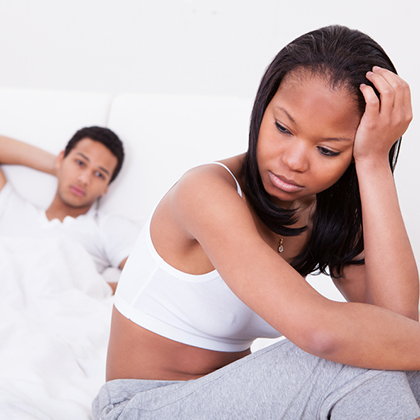Signs You Should Get Tested For Early Menopause
Share the post
Share this link via
Or copy link
Should you get tested for early menopause?
Many of us assume that we won’t have to worry about menopause for quite some time. The average age for women entering it is 51, and anything before 40 is seen as uncommon. But for some women, menopause comes much earlier than that, even as early as your 30s.
Surprised? You’re not the only one. Early menopause is on the rise (and may happen to as many as one in 20 of us).
Experts say that many young women in early menopause are underdiagnosed. So if you experience any of these symptoms, it might be time to bring them up to your doctor. You may be one of the women for whom menopause is coming a lot earlier than planned.
Your Periods Are Lighter Than They Used to Be
If it’s been happening over the past few months, this is something you should bring up to your doctor.
Your Periods Are Irregular
No matter how early they start, irregular periods are a sign that you might be at risk.
Hot Flashes
Love MadameNoire? Get more! Join the MadameNoire Newsletter
We care about your data. See our privacy policy.
We’ve all heard of this symptom when it comes to menopause. But when you have hot flashes often in your 30s, it’s easy to brush it off as something else.
Night Sweats
If you find yourself so hot that you wake up in the middle of the night (even when the thermostat isn’t turned up) covered in sweat, it sounds like night sweats, another sign of menopause.
Zero Interest in Sex
If you’re out of the mood all of the time, the trouble could be low hormone levels leading up to menopause.
Dryness
In the years leading up to menopause, you may have trouble with lubrication.
Pain During Sex
If even the common positions feel more painful than they used to, this could also be a sign of early menopause. Hormone changes cause the walls of your vagina to get thinner, and that can make things more painful during sex.
Mood Swings
If they’re surprising you on days of the month that don’t have to do with your period, there could be big changes in your hormones happening. See a doctor for a diagnosis and a course of medication that can help.
Abdominal Bloating
I’m talking about the kind of bloating that comes all of a sudden and doesn’t seem to go away no matter what you eat or drink. This type of change might be a sign that your body is gearing up to make the big change.
Dry Hair and Nails
When your estrogen levels fall, it can seriously dry out your hair and nails. If your nails are cracking or your hair is struggling more than usual (and you’ve noticed one of these other symptoms), it might be time to bring it up with your doctor.


















